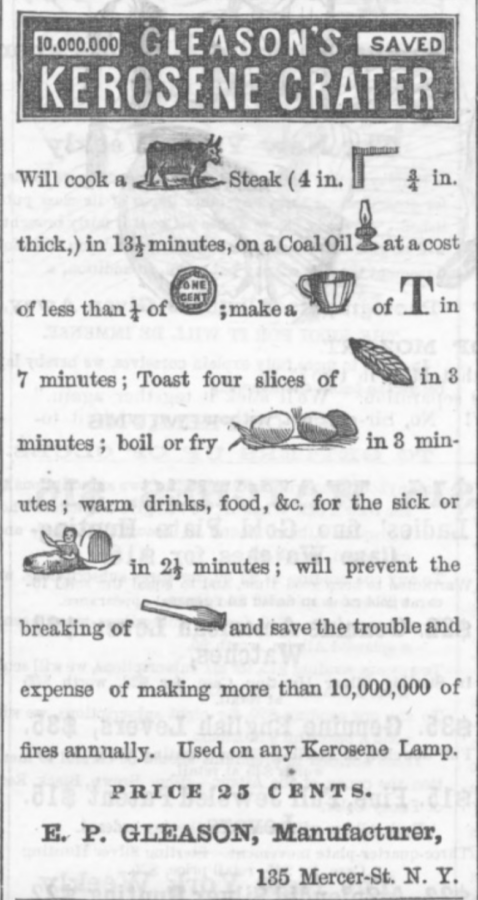
Our sesquicentennial celebration of the Battle of Shiloh continues with an excerpt from Confederate Colonel S.H. Lockett’s account of the battle printed in Battles and Leaders. It recalls how quickly the tide turned for the southern forces.
…I witnessed the various bloody and unsuccessful attacks on the “Hornet’s Nest.” During one of the dreadful repulses of our forces, General Bragg directed me to ride forward to the central regiment of a brigade of troops that was recoiling across an open field, to take its colors and carry them forward. “The flag must not go back again,” he said. Obeying the order, I dashed through the line of battle, seized the colors from the color-bearer, and said to him, “General Bragg says these colors must not go to the rear.” While I was talking to him the color-sergeant was shot down. A moment or two afterward I was almost alone on horseback in the open field between the two lines of battle. An officer came up to me with a bullet-hole in each cheek, the blood streaming from his mouth, and asked, “What are you doing with my colors, sir?” “I am obeying General Bragg’s orders, sir, to hold them where they are,” was my reply. “Let me have them,” he said. “If any man but my color-bearer carries these colors, I am the man. Tell General Bragg I will see that these colors are in the right place. But he must attack this position in flank; we can never carry it alone from the front.” It was Colonel H. W. Allen, afterward Governor Allen of Louisiana. I returned, miraculously preserved, to General Bragg, and reported Colonel Allen’s words. I then carried an order to the same troops, giving the order, I think, to General Gibson, to fall back to the fence in the rear and reorganize. This was done, and then General Bragg dispatched me to the right, and Colonel Frank Gardner (afterward Major-General) to the left, to inform the brigade and division commanders on either side that a combined movement would be made on the front and flanks of that position. The movements were made, and Prentiss was captured.
As Colonel William Preston Johnston says, that capture was a dear triumph to us-dear for the many soldiers we had lost in the first fruitless attacks, but still dearer on account of the valuable time it cost us. The time consumed in gathering Prentiss’s command together, in taking their arms, in marching them to the rear, was inestimably valuable. Not only that; the news of the capture spread, and grew as it spread; many soldiers and officers believed we had captured the bulk of the Federal army, and hundreds left their positions and came to see the “captured Yanks.” But after a while the Confederates were gotten into ranks, and a perfect line of battle was formed, with our left wing resting on Owl Creek and our right on the Tennessee River. General Polk was on the left, then Bragg, then Hardee, then Breckinridge. In our front only one single point was showing fight, a hill crowned with artillery. I was with General Bragg, and rode with him along the front of his corps. I heard him say over and over again, “One more charge, my men, and we shall capture them all.” While this was going on a staff-officer (or rather, I think it was one of the detailed clerks of General Beauregard’s headquarters, for he wore no uniform) came up to General Bragg, and said, “The General directs that the pursuit be stopped; the victory is sufficiently complete; it is needless to expose our men to the fire of the gun-boats.” General Bragg said, “My God, was a victory ever sufficiently complete?” and added, “Have you given that order to any one else?” “Yes, sir,” was the reply, “to General Polk, on your left; and if you will look to the left, you will see that the order is being obeyed.” General Bragg looked, and said, “My God, my God, it is too late!” and turning to me, he said, “Captain, carry that order to the troops on the right”; and to Captain Frank Parker, “You carry it to the left.” In a short time the troops were all falling back-and the victory was lost. Captain Parker and myself were the only members of General Bragg’s staff who were with him at that time. Captain Parker, I think, is still living in South Carolina, and will surely remember all that I have narrated…
Source: Lockett, S.H. “Surprise and Withdrawl at Shiloh” in Battles and Leaders, Volume 1. New York: The Century Co., 1887.
Image Credit: Harper’s Weekly, May 3, 1862.
